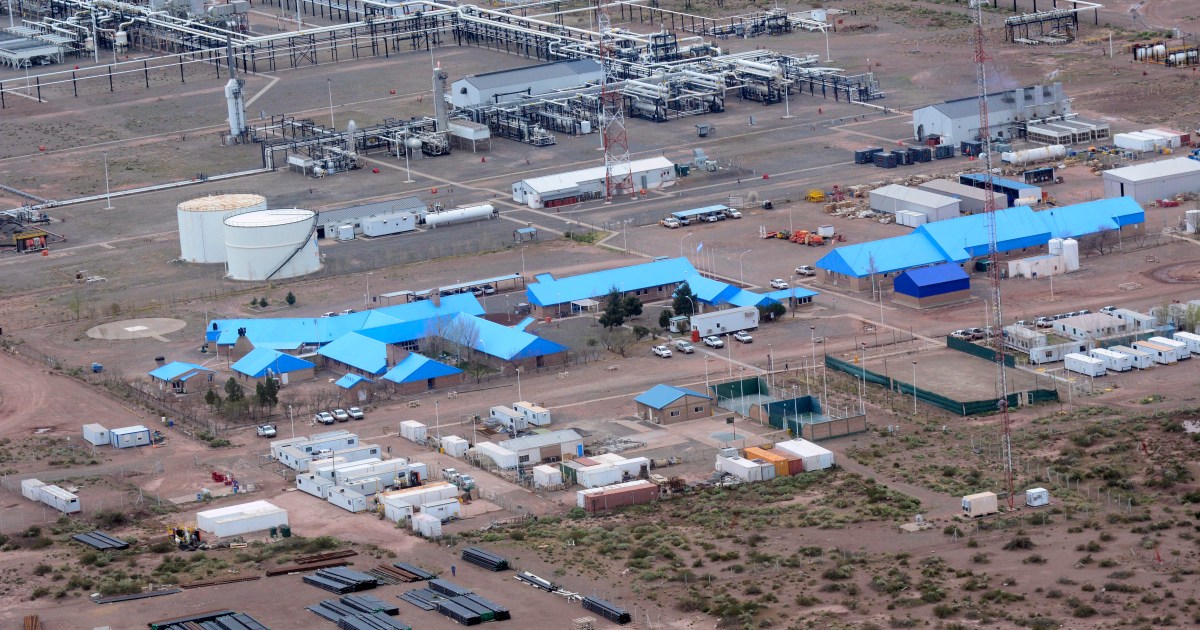The dispute over the payment of easement, the lien that affects a rural or urban property that obliges its owner to allow the use and enjoyment of said property to a third party, on public lands, dates back to 1996, 27 years ago, when the provincial law that establishes it was sanctioned.
In any case, since in the transition of the domain of natural resources there was a gray area as to whether in the case of Neuquén, the oil companies must pay this tax when it comes to land that does not have a private owner, the issue became entangled in the legal plot federal.
The French Total Austral was intimidated by the province, refused to pay, they filed a lawsuit and counter-offered with a legal action before the Supreme Court of Justice that it repeated three years ago, in 2020. The Argentine Pan American Energy also followed a similar path before the Justice to avoid paying the tax to the state of Neuquén.
The legal actions undertaken by Provincia and the oil companies were under a campaign and both parties reached a transactional agreement with the purpose of resolving the controversy.
The Neuquén State Attorney, Raúl Gaitán, reached an agreement with Total on June 23 of this year through which the French oil company acknowledges that it owes the province $75 million as “sole and total compensation” for the periods claimed. .
Governor Omar Gutiérrez and the Minister of Energy, Alejandro Monteiro, ratified the agreement through Decree 1433.
In the foundations of the document, it was recalled that Provincial Law 2183, of 1996, regulates hydrocarbon easements and establishes that permit holders and concessionaires must indemnify surface owners “whether they are public or private law persons, or private property or state fiscal provincial or municipal.
Total Austral is the operator of Aguada Pichana Este, San Roque, Rincón La Ceniza, La Escalonada, and it was until July 31, 2017 of the Aguada de Castro and Aguada Pichana areas.
Due to the fact that it had not complied with the payment of the easement, the Province initiated legal actions against it and the French oil company argued that it is not appropriate to demand the payment of the easement because on public lands “they are free” and because the legislation “dictated by the Congress prevails over provincial norms and acts.
Pan American, the oil company of the Bulgheroni family, obtained a ruling for a claim similar to its French counterpart in which the Supreme Court of Justice recognizes that it is competent for federal content. Nothing more, there is no background failure, so it keeps the debate and controversy in national jurisprudence.
Total filed a legal action before the Court in which, in addition to rejecting the payment of easements on public lands, piof certainties about the payment that Neuquén requests for the royalties based on the price of oil for a Creole barrel that was higher thanr «to the one actually invoiced and collected by Total».
This crossfire of legal actions had a beginning to an end. A “transactional agreement with the purpose of resolving the disputes” was reached both in the collection of easements and royalties.
The signed agreement establishes that Total Austral SA acknowledges that it owes Neuquén some $75,000,000 as “sole and total compensation for the periods claimed.” The agreement makes it possible to extinguish the pending obligations that the company maintains with Neuquén “Thus protecting the fiscal interest and ending the state of uncertainty to establish legal certainty for the benefit of the provincial administration.”
In 2009, the French company already had a non-payment claim on file, but to avoid generating debts, it also signed an agreement with the State Attorney in which both do not give up those claims, but agree to waive any legal action for claims prior to October 2008.
